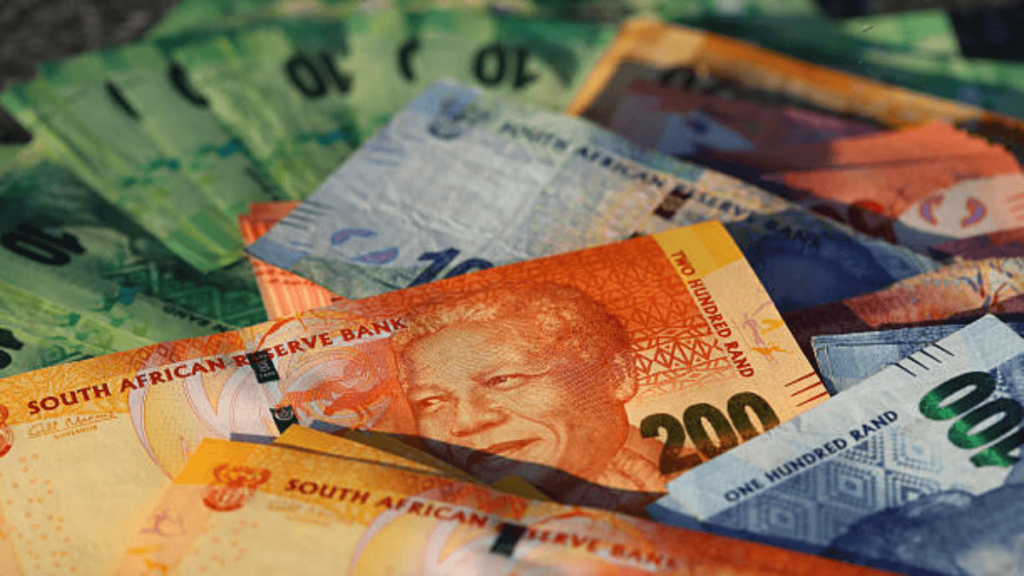As we dive deeper into 2025, South Africa is facing a unique fiscal puzzle that no one in government seems to have a clear answer for: the link between the South African Social Security Agency (SASSA) grants and the VAT freeze. A situation has emerged where political, social, and legal issues intersect, creating a conundrum that could have major implications for millions of South Africans relying on government support.
SASSA and the Budget Conundrum
For those following South Africa’s fiscal developments, you will recall that Finance Minister Enoch Godongwana’s February 2025 Budget Speech was postponed, creating an unprecedented situation. As the country struggles with ever-increasing debt servicing, the minister has had a hard time finding enough money to fund essential social welfare programs. SASSA grants, which are the lifeline for millions of South Africans, account for the second-largest portion of the national budget, after debt servicing.
In an effort to cover the gap, Godongwana proposed an increase in VAT (Value-Added Tax), suggesting that the additional revenue from the VAT hike would help fund the growing social wage. However, in a political twist, the minister also approved an above-inflation increase in social grants for 2025, with the aim of easing the burden on vulnerable South Africans. These increases came into effect in April 2025, but now, there is growing uncertainty about whether SASSA can legally reverse these changes within the same fiscal year.
Related: What South Africa’s VAT Increase Means for Your Groceries and Household Budget
The Impact of the VAT Freeze
In March 2025, amidst all the fiscal uncertainty, there was a significant pushback from political parties like the Democratic Alliance (DA) and the Economic Freedom Fighters (EFF) against Godongwana’s plan to increase VAT. Both parties argued that the VAT hike would further burden the poor, increasing the cost of living at a time when many were already struggling.
The most recent twist in the saga involves the VAT freeze, which, at the last minute, has been delayed until May 2025. This delay presents a serious challenge to the minister’s strategy, especially as social grants have already been increased, and the country has already started spending on these higher grant amounts.
SASSA’s Grant Increases in April 2025
Under Godongwana’s proposed budget, the South African government approved a 5.9% increase in “core” SASSA grants for the elderly and those living with disabilities. This meant that pensioners over the age of 60 would receive R2,310 per month, while those over 75 would be paid R2,330 per month. In addition, the Child Support Grant, which helps lower-income families with children, saw a modest 5.6% increase to R560.
But here’s where the situation becomes tricky: While the VAT increase, which was supposed to fund the higher grants, has been frozen for now, the social grant increases have already been implemented. The question on everyone’s mind is whether these increases can be reversed once they have been set in motion, especially given that SASSA has already paid these grants to beneficiaries in April.
The Role of the Courts and Legal Issues
One of the key players in this drama is the South African judiciary. The DA and the EFF have been vocally opposed to the VAT increase and have taken their opposition to the courts. Their challenge to the 2025 budget has proven successful, and the court’s ruling on the matter could have significant ramifications for the future of SASSA grants.
Historically, in countries like Hungary, Colombia, and India, courts have overturned budgets when they were deemed to underfund social welfare. In those cases, governments were forced to re-allocate funds to support the most vulnerable citizens. However, South Africa finds itself in an unusual position, having already begun spending on social grants that it might not be able to fully fund. This means that if the court decides to strike down the VAT increase, the government could face a financial shortfall—especially if it’s forced to make cuts to social welfare programs.
Can SASSA Reverse Grant Increases?
This brings us to the critical question: Can SASSA reverse the grant increases after they have already been paid out? It’s a question that may have serious political and social consequences, especially if it leads to a scenario where millions of South Africans see their grants reduced or eliminated altogether.
There is also the legal question of whether such a reversal would be constitutional or permissible under South African law. Social welfare policies are often enshrined in legislation, and any sudden changes could spark legal challenges, further complicating the government’s ability to make adjustments. Given that these increases have already been implemented, the chance of a U-turn in April or May 2025 seems slim, though the political fallout from such an action could be significant.
The Future of SASSA and Social Welfare
At this stage, it’s difficult to predict the future of SASSA grants with certainty. While the government has already approved the increases for April 2025, it’s unclear whether the frozen VAT increase will eventually come to fruition and how it will impact future grant payments. One thing is certain: the tension between the need for more social spending and the challenges of funding these increases is unlikely to go away anytime soon.
The current situation also highlights the significant pressures that the ANC-led government faces in balancing its fiscal responsibilities with its obligations to South Africa’s most vulnerable citizens. As the country continues to grapple with political instability, legal challenges, and an increasingly strained budget, there may be more uncertainty to come for SASSA beneficiaries.
What Happens Next?
The question of what happens next for social grants will likely be determined by the outcome of political negotiations, court decisions, and government fiscal policies in the coming months. It’s important to note that, historically, the South African government has faced criticism for not doing enough to support the most vulnerable members of society, and this situation is no different.
However, the real fear among millions of South Africans who rely on these grants is that they could be left in the lurch due to political instability and poor policy decisions. The elderly, children, and disabled individuals who depend on SASSA grants are particularly vulnerable, and the future of these grants is tied to the outcomes of several high-stakes political and legal battles.
Learn More: Social Grants Growth Plan: 5.4M Older Persons & 14.1M Children Covered by 2030
A Fiscal Tightrope
As we move through 2025, South Africa finds itself walking a precarious fiscal tightrope. The government is caught between the need to maintain its social welfare commitments and the political realities of an economy that is struggling to keep up with growing demands. Whether SASSA grants will continue to be funded at their current levels or whether adjustments will be made remains an open question.
For now, the political and legal battles surrounding the VAT freeze and SASSA grants will continue to play out, and millions of South Africans are left hoping that their basic social safety net will remain intact. The coming months will reveal whether South Africa can balance its fiscal needs with its social obligations—an outcome that could shape the country’s future for years to come.
Source: The South African










